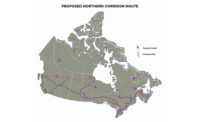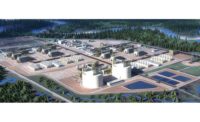South African Sasol Limited and Calgary, Alberta-based Talisman Energy have commissioned a feasibility study to determine where to build of a gas-to-liquid (GTL) plant to take advantage of 44 trillion cu ft of shale gas deposits in northeastern British Columbia. The technical study follows news in March and June of this year that Sasol, an industry leader in GTL technology, paid $2.08 billion for 50% of Talisman’s Farrell Creek and Cyprus A assets.
We’ve signaled that we’d like the GTL plant to be near our Montney assets,” says Talisman spokeswoman Phoebe Buckland. “But the exact location is under review, whether that be in northern Alberta or northeastern BC.
While keeping its cards close to its chest, the B.C. government acknowledges it has been in informal talks with the partners and is excited by the prospect of a 96000 bbl/d GTL facility in its northeastern region. “B.C. is an excellent business location,” says Energy Minister Rich Coleman, “and a GTL facility would be of great interest because it would add value to our abundant natural gas reserves.”
The proposed GTL plant would convert natural gas to products including diesel and chemical naphtha using proprietary technology supplied by Sasol. Sasol was brought in specifically to help Talisman unlock the upstream values in the Montney assets. The two-year technical study into the cost and location of the GTL plant is being conducted by the Swiss firm, Foster Wheeler, and has already begun.
A number of factors will determine the GTL plant’s ultimate location, including physical access to the area and labor costs. “Obviously there are a lot of oil sands projects happening in that part of the world as well, so the labor supply is tight,” Buckland says.
Rob Gibb, senior advisor of government and industry relations for Talisman says GTL, “is potentially an attractive way to profit from the large gap that exists between natural gas and oil prices that have arisen with the advent of shale gas.” Natural gas prices have fallen significantly in recent years, with prices down from $13 per million British thermal units in 2008 to approximately $4.20 today in British Columbia.



Post a comment to this article
Report Abusive Comment